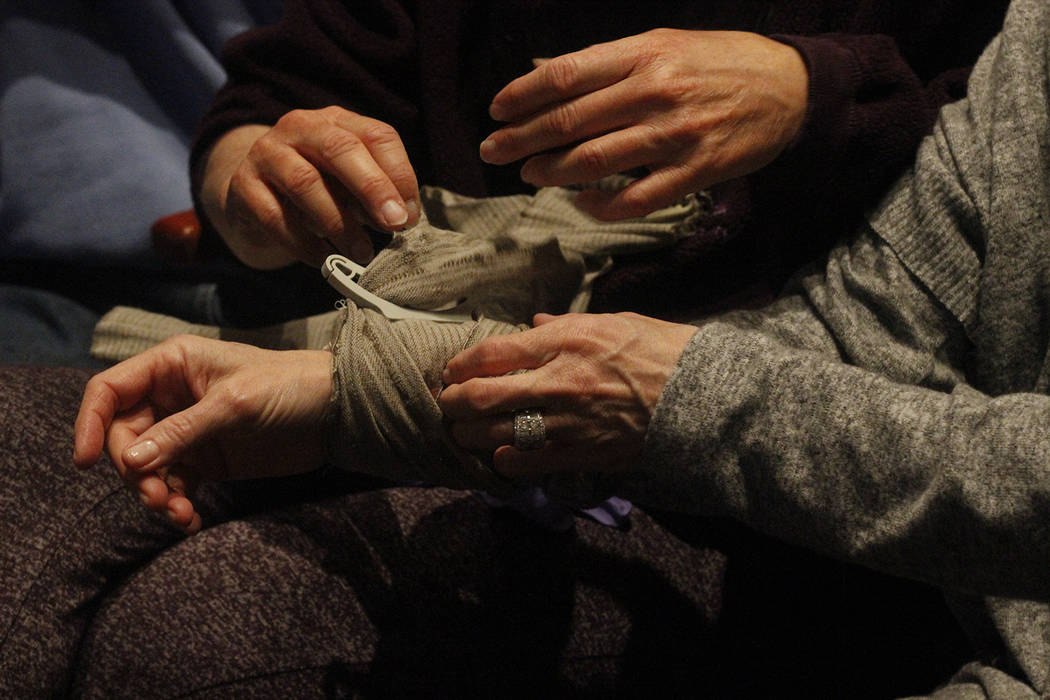Summerlin’s Stop the Bleed teaches lifesaving skills

Patrick Fulks of northwest Las Vegas was working as a security guard at Drai’s nightclub six years ago when a shooting erupted outside.
“I had a gentleman die in my arms,” Fulks said. “And unfortunately, we didn’t have the additional resources at the time to save him. ”
The night of the Oct. 1 shooting, Fulks was working overnight at AMG Specialty Hospital. The hospital was overflowing, as it was one of several prepared to receive patients that night, he said. Since, he has carried what he calls an active-shooting kit around whenever he’s out in case another tragedy strikes; it’s filled with gauze and other medical supplies.
On Jan. 15, Fulks was one of about 40 people attending a free course at Summerlin Library called Stop the Bleed, designed to teach anyone how to control and stop life-threatening bleeding.
“Civilians are going to be the ones on scene when and where it happens well before us,” said MedicWest Ambulance paramedic Callie Fraser. “And if you’re immediately there, you are immediately able to provide care at the moment when tragedy strikes.”
Attendees learned how to tie a tourniquet, apply pressure to a wound and pack a wound with gauze to stop bleeding. During interactive breaks, people in the audience practiced tying tourniquets around one another’s limbs. Fraser was joined by Leslie Shaffer, a paramedic with AMR, an ambulance service in Las Vegas, and Patrick Cater, a dispatcher for AMR, for the presentation.
“The inception of this course came from the Sandy Hook shooting in 2012,” Shaffer said. “Twenty-six people died that day, not including the shooter, and 20 were kids. When they got those 20 bodies back to the morgue, they discovered 80 percent had potentially survivable injuries. If someone had simply applied direct pressure, if someone had tied a tourniquet, some of those kids would be alive today. Unfortunately, teachers didn’t have this training. That’s why this class is so important.”
Shaffer and Fraser estimated they have trained 10,000 people through the course in the past year.
“Medical responders on average here in Las Vegas take up to seven to 10 minutes to get to a call,” Shaffer said. “When a patient can bleed out in three minutes, time is of the essence. We need to train everyone so they know how to do this if they have to.”
Contact Mia Sims at msims@